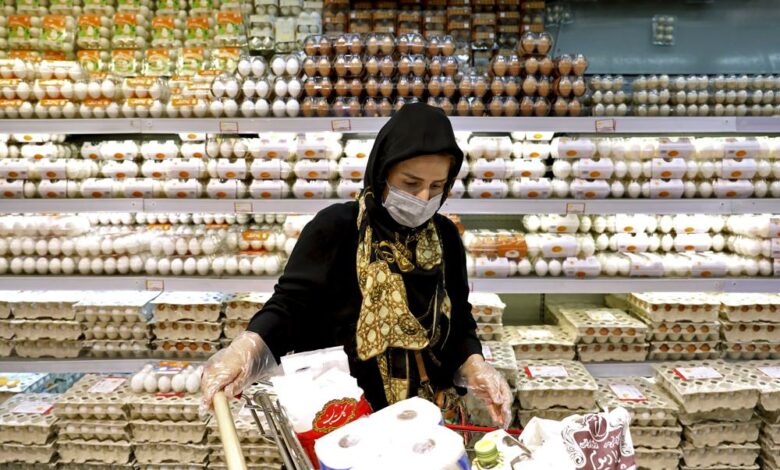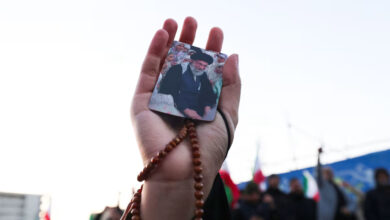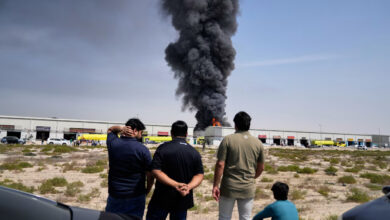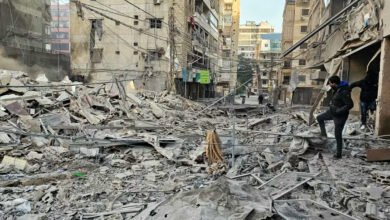
TEHRAN, Iran (AP) — Mehdi Dolatyari watched with dread in recent months as once-affordable goods at his central Tehran supermarket soared out of reach for his customers. Iranians who previously bought sacks of staple foods at the store now struggle to scrape together enough for meals, as the country’s currency sinks to new lows against the dollar.
“Rice is awfully expensive,” Dolatyari said, describing how its price has nearly doubled.
With U.S. sanctions still strangling the economy, record-breaking inflation has hit ordinary Iranians where it hurts most. Stunned shoppers are cutting meat and dairy from their diets, buying less and less each month.
The Iranian rial is now about 270,000 to the dollar — compared with 32,000 rials for $1 at the time of Tehran’s 2015 nuclear deal with world powers. That has decimated people’s salaries and savings.
Inflation has soared to 45%, the highest level since 1994, while food prices have skyrocketed by nearly 60%.
The causes are multiple and overlapping. Among them: a sinking economy devastated by years of sanctions linked to Iran’s nuclear program; supply chain disruptions from the coronavirus pandemic; and a steady decline in local production.
Gross domestic product plunged by almost 60% from 2017 to 2020, the Chamber of Commerce reported last week, with its head Gholamhossein Shafeie describing the drop as a “serious warning for the future of Iran’s economy.”
Families now find their money increasingly worthless and must forgo foods once considered staples.
Compared with a year ago, the price of milk, yogurt and eggs has swelled by nearly 80%. The cost of vegetables and meat has risen by some 70%, and the cheapest basics like bread and rice by more than 50%, according to the government statistics agency.
“We see prices get more and more expensive every day,” said Ozra Edalat, 63, an exasperated shopper. “It’s terrible. How is it possible to get by with such low salaries?”
Many Iranians say they’re shopping less than ever before.
“Now I can only buy groceries once a month,” said Ghane Khiabani, a mother of three in Tehran. “We have to be pinching pennies.”
Severe sanctions were reimposed by the U.S. in 2018 when then-President Donald Trump withdrew Washington from the landmark nuclear accord, and hope that world powers will find a path back to the deal remains elusive. Negotiations in Vienna over the agreement’s resurrection paused in June just before hard-line Iranian President Ebrahim Raisi took office, with no date set for their resumption.
Iran’s weak economy suffered from mismanagement for decades, experts say, but sanctions, particularly on the crucial energy sector that block the government from selling crude oil abroad, have hastened the decline.
“The main cause of the current high inflation is internal, bureaucratic and executive inefficiencies,” said economist Morteza Afghahi. “However, since we are dependent on selling crude oil … and on foreign currencies earned through oil revenues, we have become more vulnerable under sanctions.”
The shortage of dollars has prompted the government to print more and more rials to pay what it owes, stimulating the economy but stoking inflation.
As a result, many Iranians have been pushed into poverty. In the past year, the number of citizens living under the official poverty line — bringing home less than the equivalent of $46 a month — increased by nearly 40%, the government’s own figures show.
Another casualty of inflation may be the Iranian grocery store itself.
The explosion of major chains and online shopping, along with increasingly rising rents, slim profit margins and dwindling customers, have left small- and medium-sized shops struggling to survive, unable to compete with the discounts on bulk buying found in big franchises.
“It’s not economical to run the shop anymore,” said Ali Donyaie, 71, who opened his grocery store in Tehran more than four decades ago.
At stake is not only the price of goods, but the fate of thousands of cashiers, fruit sellers and meat cutters. The layoffs will ripple across the economy, warned Saeed Derakhshani, head of Iran’s supermarkets union, dealing yet another blow to those who already can only afford a few essentials.
“A retailer won’t be able to survive,” Derakhshani said. “What happens to their business, their families and those who labor for them?”
___
Associated Press journalist Mohsen Ganji contributed.
___
Follow Mohammad Nasiri on Twitter at www.twitter.com/moenasiri.




